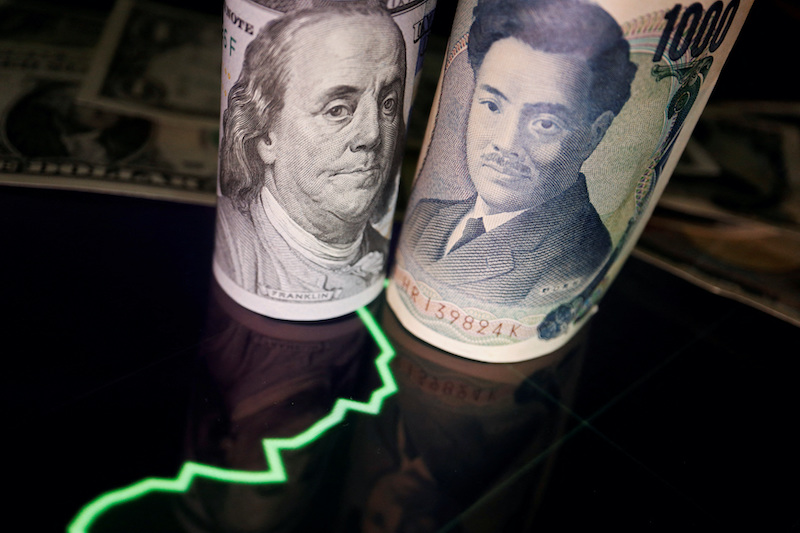The Japanese yen shot up on Thursday after officials intervened in the foreign exchange market for the first time since 1998 to bolster the plunging currency.
The dollar fell over 1% to 142.3 yen, after trading earlier at more than 1% higher against the Japanese currency. It was last down 0.42% at 143.4.
The government intervened to sell dollars for yen to stem the Japanese currency’s recent sharp falls, top currency diplomat Masato Kanda said later.
“Given that we just had the BOJ underpinning a very loose monetary policy and that came just after the Fed underpinned a hawkish outlook, I think the fundamentals will drive dollar/yen higher,” Rabobank head of currency strategy Jane Foley said.
“But what Japan is doing is sending a signal that it’s not a free ride to drive dollar/yen higher.”
ALSO SEE: Asian Currencies Sink as Dollar Soars, More Rate Hikes Loom
Swiss in 50bps Rate Hike
Against other major currencies, the dollar hit multi-year highs after the Federal Reserve surprised markets with hawkish interest-rate projections, while the Swiss franc tumbled after the central bank raised rates by an expected 75 basis points.
The dollar and euro both climbed over 1% against the Swiss franc, with the dollar last at 0.9764, and the euro at 0.9628.
The Swiss National Bank raised its policy interest rate to 0.5% from the minus 0.25% level it set in June – only the second increase in 15 years.
“I think the outsized reaction in EUR/CHF was down to the view that SNB could do 100 basis points, following (Sweden’s) Riksbank earlier this week. I think the market reaction, the EUR/CHF rally, is a bit overdone,” Chris Turner, global head of markets at ING, said.
The dollar was also stronger against other major currencies and the dollar index – which measures the US unit against a basket of six counterparts – earlier rose as high as 111.81 for the first time since mid-2002.
The euro weakened to a new 20-year trough of $0.9807, and sterling fell to a fresh 37-year low of $1.1213.
BOE to Follow Suit?
The Bank of England meets later in the day, and the market currently sees around an 85% chance of a 75 bps rate hike by the BOE, and 15% of a half point increase.
On Wednesday, the Fed issued new projections showing rates peaking at 4.6% next year with no cuts until 2024. It raised its target interest rate range by another 75 basis points (bps) overnight to 3%-3.25%, as was widely expected.
The dollar was already supported by demand for safe-haven assets after Russian President Vladimir Putin announced he would call up reservists to fight in Ukraine and said Moscow would respond with the might of all its vast arsenal if the West pursued what he called its “nuclear blackmail” over the conflict there.
Commodity currencies also took a big hit due to the deterioration in risk sentiment.
The Aussie dropped as low as $0.6574, its lowest since mid-2020. Liquidity in the currency may be thin with Australia having a public holiday.
- Reuters with additional editing by Jim Pollard
ALSO SEE:
Japanese Inflation Close to 8-Year High, Over BOJ Target
Bank of Japan Seen Preparing for Currency Intervention
Yen Dives to 24-Year Low as Kuroda Warns on Economic Impact
























